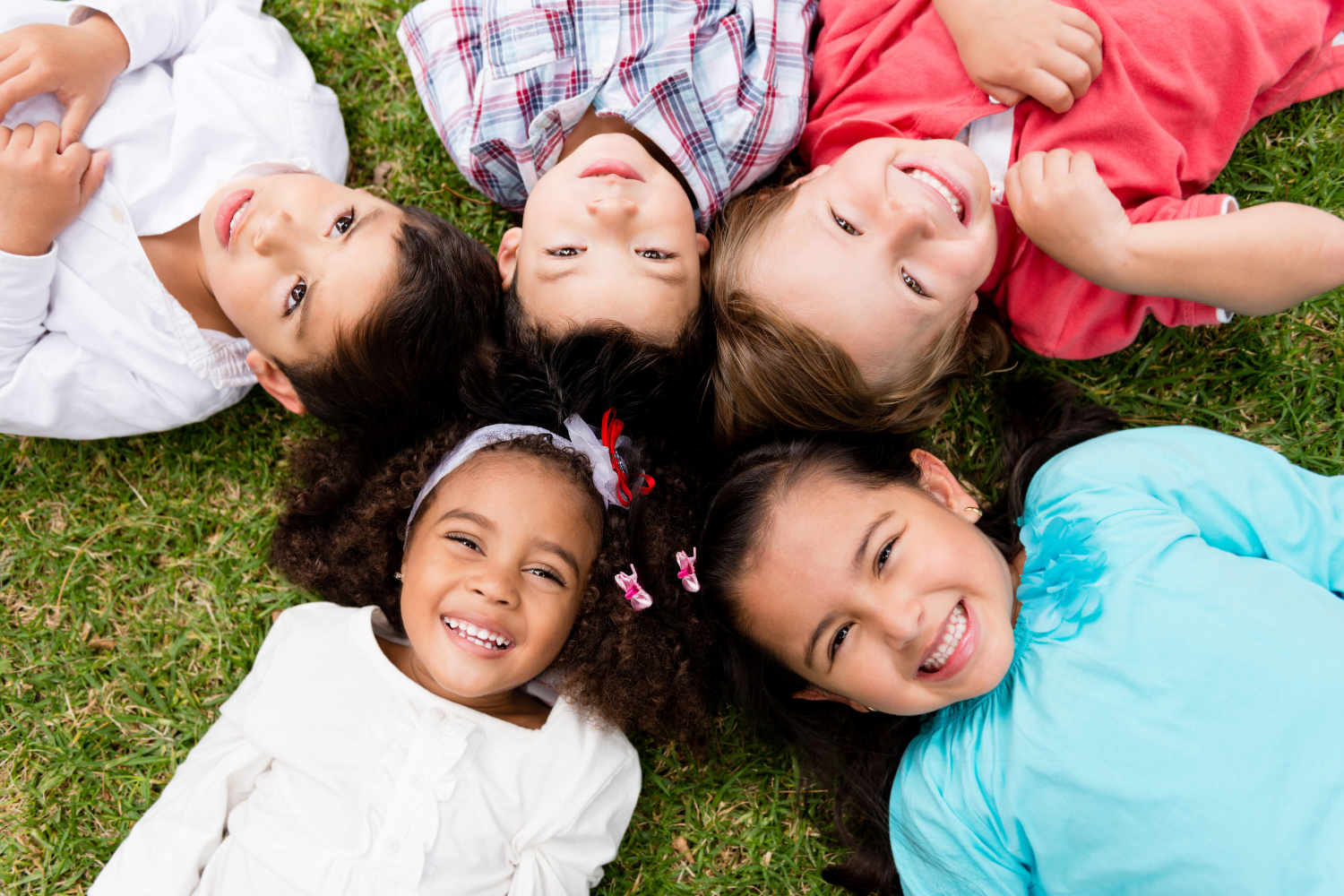I took my kids trick-or-treating on a few occasions, but the more I thought about the messages we were communicating to our kids, the more I began to think trick-or-treating might not be such a great idea.
Ironically, while growing up, Halloween was one of my favorite holidays. What kid doesn't like candy? Having a free-for-all candy night with no adult supervision was the equivalent of kid Heaven.
But now, I stand on the side of those who think we should ban Halloween.
#1 Health & Mixed Messages
Letting our children trick-or-treat contradicts our position that sugar is bad for their teeth and bad for them. We limit the sugar our children eat all year, but one day a year we give them a free rein to eat as much sugar as they want.
Do you have any idea how much sugar they consume? The average child consumes three cups of sugar on Halloween!
Eating Halloween candy is not limited to one night, either. For however long it takes them to get through their bag of candy, that's how many days they are filling their bodies with harmful amounts of sugar.
The gross amount of sugar consumption creates severe sugar spikes in our children's blood levels, leaving them feeling not so well.
Overeating candy comes with the underconsumption of wholesome foods, which only exacerbates the problem.
Allowing our children to trick or treat on Halloween and eat so much candy is not practicing what we preach, nor is it responsible parenting. I'm guilty too, but when the facts are on the table— wow.
I read that one dentist pays children $2.00 for every pound of Halloween candy they give him. While I can appreciate the intention behind this gesture, is it sending our kids the right message?
We buy the candy, the kids knock on our doors, we give them the candy, and then the kids sell it to the dentist.
How can turning our kids into greedy candy peddlers be a solution?
#2 Manners & Strangers
We teach our kids not to talk to strangers, and we teach them that it isn't polite to ask people for things, yet, one night a year, we let our kids knock on the doors of strangers and ask them for candy.
One gutsy moment for me as a child happened on my way home from school. I had just turned twelve, and my best friend Bridget and I were famished after a long day of sitting in classrooms.
At about 3:20 in the afternoon, as we were walking home with stomach pains from hunger, we had this bright idea.
We could trick-or-treat!
We knocked on the door of an apartment near our school, and an elderly woman opened the door. Very surprised to see us, she asked, "Isn't it a little early, girls?"
She gave us some candy anyway.
As a mother reflecting on the idea of trick or treating, it strikes me as being a contradiction of everything we’ve taught our children thus far.
We teach them that it's not polite to ask for things, yet once a year, it is permitted. We teach our kids not to speak to strangers and NEVER to take candy from a stranger, yet once a year, it is permissible.
Of course, there are always exceptions to the rules, but this one seems to go a little too far.
#3 Corporate Horror Show
Halloween has become a creepy holiday; the decorations have become gothic and violent since the corporate world has recognized it’s money-making potential.
When we were little, we had innocent little costumes: princesses and cowboy outfits. You could be a witch if you wanted, but the witch was harmless.
In my old neighborhood, a neighbor had gravestones on his front lawn and skeletons that moved and looked like they were coming out of graves. When we drove up the hill at night, my kids used to get scared because the scene looked so real.
So did I!
And that was a mild scene. My friend's neighbor in the town next to us would spend a fortune decorating his lawn until it looked like the scene out of a horror movie. I used to wonder what on earth that man was thinking.
Halloween is supposed to be for kids, not psychopaths.
#4 Waste & Starvation
I like the idea of carving pumpkins, but should we be wasting food like that? With so much starvation and deprivation in the world, it seems insensitive to waste pumpkins for a night of amusement.
For Halloween, about 22.2 million pumpkins go to waste! At your average price of $5.00 per pumpkin, that's 111,000,000 dollars of food that we waste.
The average cost to feed one person per day in the US is supposed to be about $11.00 (seems very low); divided by 111, 000,000, we could feed 10 million people, roughly. (2022 stats)
My god, that's shameful.
What Can Kids Do Instead of Trick or Treating?
Have a costume party
Start a local fund and ask people to donate $5.00—instead of buying a pumpkin—and then use the money to donate food to a local charity.
Study the history of Halloween, the practice of Halloween, and the contradictions of Halloween, and ask your children to take a position for or against it and write an age-appropriate essay.
What You Should Not Do
Don’t take a stance of moral superiority if you decide to skip Halloween.
I had a friend once whose children would stay home on Halloween. When the neighborhood kids knocked on their door, they would offer candy and then explain to them why they didn’t celebrate Halloween.
The unspoken was that the family was morally superior to those ill-fated enough to knock on their door, and no one accepted candy from that family without feeling a little less good about themselves.
Instead, teach your children that everyone is entitled to their beliefs and to their opinions, just as your children are entitled to their own.
While your children may not always agree with other people, they do need to respect other people’s ways because each person on earth is worthy of being treated with respect and dignity.
And lastly, if you decide to skip Halloween, don’t give candy to other people’s children. Put a “Do Not Disturb” sign on your door and leave it at that.
Don’t miss our free download, Ten Books Every Well-Educated Child Should Read.
Teach your child to read before sending him to school! Learn more about Elizabeth's unique course, How to Teach Your Child to Read and Raise a Child Who Loves to Read.
For parents of children under age seven who would like to prepare their child for social and academic success, please begin with Elizabeth’s singular online course, Raise Your Child to Thrive in Life and Excel in Learning.
When you join the Smart Homeschooler Academy online course for parents, Elizabeth will make homeschooling manageable for you. She’ll guide you in helping your kids reach their intellectual potential and developing good character.
As a homeschooler, you will feel confident, calm, and motivated knowing you have the tools and support you need to homeschool successfully.
Elizabeth Y. Hanson is a homeschooling thought-leader and the founder of Smart Homeschooler.
As an Educator, Homeschool Emerita, Writer, and Love and Leadership Certified Parenting Coach, Elizabeth has 21+ years of experience working in education.
Developing a comprehensive understanding of how to raise and educate a child, she devotes her time to helping parents get it right.
Elizabeth is available for one-on-one consultations as needed.
"I know Elizabeth Y. Hanson as a remarkably intelligent, highly sensitive woman with a moral nature and deep insight into differences between schooling and education. Elizabeth's mastery of current educational difficulties is a testimony to her comprehensive understanding of the competing worlds of schooling and education. She has a good heart and a good head. What more can I say?”
—John Taylor Gatto Distinguished educator, public speaker, and best-selling author of Dumbing Us Down: The Hidden Curriculum of Compulsory Schooling









































